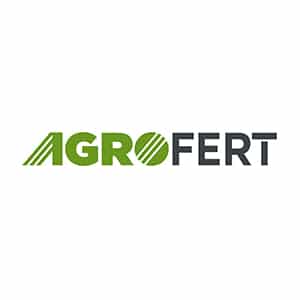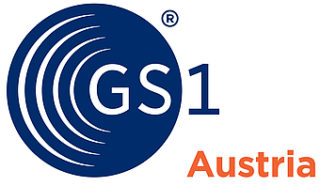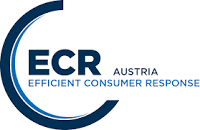EDI consolidation for Agrofert
A unified EDI platform with a centralized archive

Individual companies (especially in the food industry), which gradually joined the AGROFERT group, had long used individual EDI solutions from different providers. These solutions operated on different functional levels and connected to different information systems at individual companies. Most of these solutions covered basic EDI communication with commercial chains using GS1 EANCOM-type EDI messages such as orders, despatch advices and invoices.
In view of the different levels of EDI expertise and experience that existed at individual companies, an EDI working group was established in late 2012. This group, headed by representatives from PENAM a.s., analyzed the requirements and needs of individual companies and defined the project requirements for a unified central EDI environment, including a centralized archive of EDI documents. The project was driven by the need to increase the effectiveness and robustness of the system and also to ensure uniform messages. At the same time, the working group took into account the requirements for internal EDI communication between individual companies within the AGROFERT group which have evolved in recent years.
The project involved key companies of the group and major players on the Czech, Slovak and Hungarian markets such as PENAM, a.s., Kostelecké uzeniny a.s., Vodňanská drůbež, a.s., OLMA, a.s., Mlékárna Hlinsko, a.s., Animalco a.s., PMU CZ, a.s., Ceres ZRt., and others. The goal of the project was to group the fragmented EDI solutions at individual companies, consolidate them into a single platform, and thereby create a unified EDI environment shared by AGROFERT companies and their suppliers. Another goal was to streamline the electronic interchange of documents and optimize costs for electronic data interchange.
During the course of basic implementation, electronic despatch advices (DESADV) with an SSCC code were also implemented at selected companies. In combination with the newly introduced pallets equipped with GS1 LL pallet labels with an SSCC code, this allows for faster delivery of goods to customers. Thanks to SSCC codes, entire pallets of goods can be delivered as a whole. By scanning pallet labels with SSCC bar codes, users can retrieve information about the pallet content directly from the electronic despatch advice, including additional information about the delivered goods such as batch number and expiration date. The use of SSCC codes also makes it easier to monitor the movement of pallets during the logistics process. Milan Mikula, Solutions Manager, EDITEL CZ
Additional design requirements
In addition to the main project goals, AGROFERT also defined some key attributes believed to be essential for the effective use of the ultimate solution. The solution had to include all functionalities of a standard EDI system and support message conversion from/to the EDIFACT format while maintaining all types of input data forms already in use (e.g. INHOUSE, IDOC, XML). Also, the solution had to support other automated communication channels such as FTP, POP3 / SMTP, HTTP, web services, SOAP and other protocols. AGROFERT also wanted to create a website to monitor EDI message transmissions, communication statistics, and to automatically send error notifications. In addition, the solution needed to electronically archive all types of used EDI messages as mandated by legal requirements of all countries involved, including EU requirements.
Implementation at 14 companies in 10 months
After a call for tenders, the working group selected the eXite PRO solution submitted by EDITEL. This comprehensive platform provides EDI services, fully automated business processes, and thus reduces administrative costs while increasing corporate efficiency. The winning bid met all requirements defined in the tender.
During implementation, it was first necessary to carry out a number of analyses to determine the types of messages which group companies exchange with their partners, create translation maps and modify the settings of existing communication modules so that they meet the requirements for data transmission. Based on these analyses, schedules were prepared for the migration of individual companies to the final common EDI solution.
Subsequent migration took place step by step. Implementation was always completed at one company before starting at the next, so that operations within the group were not disrupted. The entire project (even taking into account the possible addition of a new company into the group) took 10 months. Overall, fourteen companies were connected. Since selected companies at AGROFERT Group use the SAP ERP system, there was no need to carry out the original goal of implementing a uniform interface for information systems.
Thanks to the EDI project, the AGROFERT group has achieved full internal system optimization. The migration to the new platform has resulted in considerable cost savings and has simplified the inclusion of new companies in business communications. Given the increase in mutual business activities at individual members of the AGROFERT holding, there has also been an increase in the efficiency of business communication via EDI. This is in large part thanks to the unified system and establishment of joint working groups. The system stands out for its minimal demands on the infrastructure of all parties connected to it, and thanks to 24/7 monitoring, AGROFERT has a constant overview of all business communication processes and information about the status of individual processes. Via the eXite PRO website customized for the AGROFERT Group, employees have an effective tool for sending and receiving electronic documents, especially electronic invoices. Thanks to the business monitoring and reporting functions, electronic business processes and individual business transactions can be monitored. The system handles up to 30,000 EDI messages every day.
Each month, more than 200,000 EDI orders are sent or received, along with roughly 110,000 electronic despatch advices and 75,000 invoices. Currently, additional companies in the AGROFERT group are being connected to the EDI communication system, and EDI communication is being further developed in other business areas throughout the entire group.
Main project goals
- Streamline electronic document interchange
- Consolidate all EDI solutions into a single platform
- Reduce costs for EDI communication processes
- Integrate all external and internal B2B communication processes
- Include all functionalities of a standard EDI solution
- Introduce the option of quickly responding to unconventional requests from business partners
- Ensure support for other automated communication channels
- Enable close integration with existing information systems
Solutions’s main benefits
- Connection of several suppliers based in four different countries using a single communication platform
- A single simple communication software tool in the infrastructure of each member of the AGROFERT group
- No need to invest in EDI software and special hardware, operation costs for services only
- Two-way data conversion INHOUSE -> EDIFACT
- Preservation of current data structures of AGFROFERT members
- Automatic electronic signatures for outgoing messages
- Verification of electronic signatures for incoming messages
- Monitoring of all available communication processes
- Mutual pairing and assessment of business transactions
- Mandatory archiving of documents in a long-term archive
- 24/7 error monitoring by the supplier’s help desk
- Full compliance with legislative requirements
About Agrofert
Every day, fourteen companies of the AGROFERT Group exchange up to 30,000 EDI messages with their partners. Until recently, each company of the group used individual solutions for the electronic interchange of data on different levels, which were supplied by a variety of providers. In a comprehensive project, EDI communication processes were consolidated into a centralized environment for the entire group.
The AGROFERT group consists of the parent company, AGROFERT, a.s., and its subsidiaries, which together have a large portfolio of industrial and retail products as well as services across numerous industries including chemistry, agriculture, food, ground machinery, renewable resources and, as of recently, also forestry, timber harvesting and woodworking. It is the largest group in the Czech and Slovak agricultural sector and also the second-largest chemical group in the CR with 27,000 employees, which makes it one of the largest employers in the Czech Republic.




